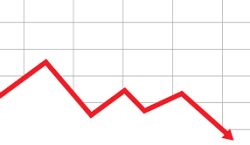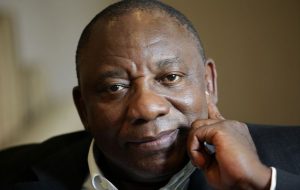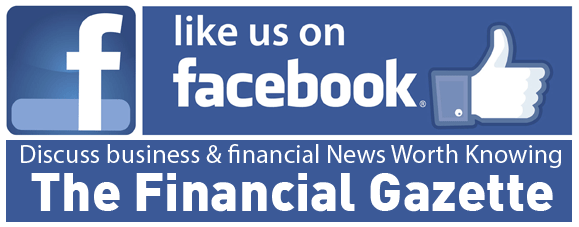

SOUTH Africa (SA)’s new private-sector umbrella group formed to fight Covid-19 has been in daily talks with the government over reopening the economy and is urging it to move quickly to lockdown level 2.

Cyril Ramaphosa, President of South Africa.
Business for SA (B4SA) is proposing that companies, in partnership with labour, can take charge of implementing stringent health and safety controls and monitoring in the workplace to ensure the spread of the virus is controlled.
It has told the government that the current approach is economically impractical and hard to regulate, and that this could have dire socioeconomic and health consequences.
This comes as April data start to show the devastating impact of the first full month of the lockdown, during which many sectors of the economy ground to a halt, a growing number of jobs and businesses teetered on the brink and tax collections plummeted.
In a media briefing this week B4SA — which has brought organised business bodies together to work with the government to tackle the crisis — urged the cabinet to accelerate the risk-adjusted easing of the lockdown.
It said this “would enable a successful return to work while saving lives and livelihoods and reinvigorating full economic activity in a co-ordinated and integrated way”.
B4SA’s modelling indicates that the move to level 4 will not materially improve economic outcomes because even in the best-case scenario the proportion of the workforce returning to work will no more than double from the 27 percent active under level 5.
And if level 4 continued for a month, with a gradual move to lower levels, the economy would contract 14,5 percent in 2020.
However, a quick move to level 2 would reduce the contraction to 10 percent and cut the number of formal sector jobs at risk from 2-million to below half that number. At level 2, 97 percent of the workforce would be allowed to work.
The faster trajectory, which B4SA said could be achieved if business and the government worked together to implement workplace safety practices to minimise transmission, would reduce the budget deficit to 10 percent.
The deficit is projected at 16 percent if level 4 is prolonged.
SA Revenue Service commissioner Edward Kieswetter this week said government revenue could fall R285 billion short of budget targets this year.
Aprils figures showed year-on-year drops of 55 percent for corporate taxes, nearly 20 percent for import tax, 5,2 percent for PAYE and 4,3 percent for domestic VAT.
B4SA’s modelling, which found that in a worst-case scenario the economy could contract 17 percent despite the government’s stimulus package, reflects similar figures to those in a Treasury study by UNU-Wider, which found the economy could contract 16 percent in a “long” shutdown scenario.
 Where the government’s approach is essentially to ban all economic activity except that which is specifically exempted, business organisations and others have argued for an approach in which any activity is permitted, with strict safety controls, unless it is too high-risk in terms of disease transmission.
Where the government’s approach is essentially to ban all economic activity except that which is specifically exempted, business organisations and others have argued for an approach in which any activity is permitted, with strict safety controls, unless it is too high-risk in terms of disease transmission.
That would still keep sectors such as tourism, sit-down restaurants and many personal services closed but would allow much of the economy to reopen.
The frequent and sometimes heated meetings between ministers and business representatives have served to clarify interpretation of some of the level 4 regulations, with business encouraged by the government’s positive response to suggestions such as opening up e-commerce.
But there has been significant criticism and concern from many companies across all sectors about the application of the regulations, which are highly bureaucratic and complex and dislocate supply chains. — Business Times